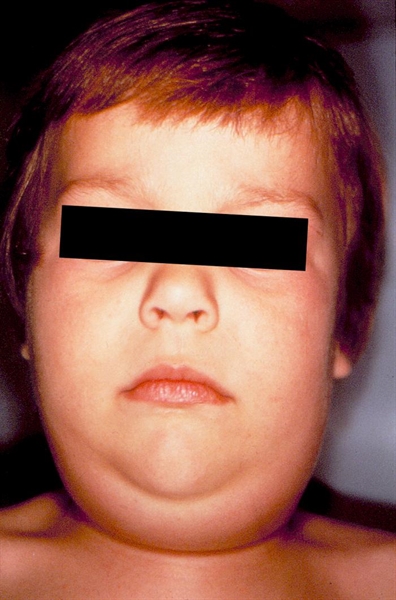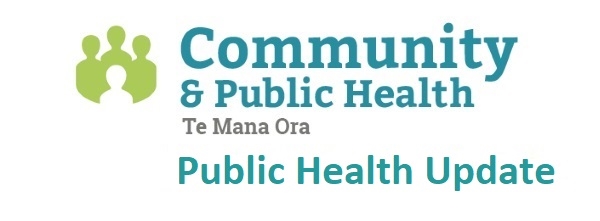December 2023
Mumps

Five cases of mumps have been notified to Te Mana Ora over the last three months: our highest annual number of cases since the Auckland-centred epidemic in 2017.
Mumps is a paramyxovirus transmitted by airborne droplets or direct contact with infected respiratory tract secretions or urine. Classic mumps is characterised by fever, headache, and swelling and tenderness of one or more parotid (salivary) glands. At least 30 percent of mumps infections in children are asymptomatic. MMR vaccine is around 65 percent effective against mumps after one dose, and up to 88 percent effective after two doses.
Patients with mumps are excluded from education, work, and close contact with other susceptible people for five days after the onset of parotid swelling. Susceptible contacts (ie those born after 1981 who have not had mumps infection or been fully vaccinated for their age) are advised to avoid high-risk settings (health care, contact with immune-compromised people, or education settings) from 12 to 25 days after exposure.
Possible cases of mumps should be notified to the medical officer of health on suspicion, and a viral buccal swab sent for PCR testing, including details of immunisation history and date of onset of parotitis. Public health staff will follow up cases and contacts urgently.
Notification of sexually transmitted infections

Te Mana Ora is still receiving some sexually transmitted infection notifications with full patient information included. AIDS, HIV, gonorrhoea, and syphilis are notifiable diseases, but on a “non-identified basis”, and sending full patient information breaches patient privacy. Please use the links on the ESR Public Health Surveillance website to notify sexually transmitted infections anonymously.
Neonatal BCG
Tuberculosis remains a major global health problem, with an estimated 1.7 billion people infected.
Disseminated and meningeal TB are more common in very young children. Recent local cases of both latent and active tuberculosis in children who would have been eligible for vaccination highlight the need for health practitioners to refer eligible infants for neonatal BCG.
Neonatal BCG is recommended and funded for infants at increased risk of TB, defined as those who:
- will be living in a house or family/whānau with a person with either current TB or a history of TB
- have one or both parents or household members or carers who within the last five years lived for a period of six months or longer in countries with a TB rate ≥40 per 100,000*
- during their first five years will be living for three months or longer in a country with a TB rate ≥40 per 100,000.*
* For TB incidence rates in specific countries see the Tuberculosis Profile website.
BCG vaccination is administered by the Public Health Nursing service. For referral information see Community HealthPathways.
National Public Health Service

Since 1 June 2022 Te Mana Ora | Community & Public Health has been part of Te Whatu Ora’s National Public Health Service, and we are moving to a regional service delivery model. Our leaders will be well known to many of you: our Te Waipounamu Regional Director is Vince Barry, and our Te Waipounamu Clinical Director is Dr Ramon Pink.
On 26 January 2024 Te Mana Ora’s Christchurch team will move to a new building – the former Pegasus building at 160 Bealey Avenue. Our contact details remain the same (and are also listed in Community HealthPathways):
In Canterbury:
Monday to Friday, 8.00 am to 5.00 pm, phone (03) 364‑1777.
Monday to Friday, 5.00 pm to 10.00 pm, and Saturday and Sunday, 8.00 am to 10.00 pm, phone via switchboard on (03) 364‑0640 and ask the operator to page the on-call Health Protection Officer.
For urgent advice only, 10.00 pm to 8.00 am, phone via switchboard on (03) 364‑0640 and ask the operator to page the on-call Health Protection Officer.
For urgent notifications, 8.00 am to 10.00 pm (7 days a week), follow up electronic notification with a phone call. Outside of these hours (i.e., overnight) phoning urgent notifications is not necessary. Electronic urgent notifications will be actioned first thing in the morning.
In the West Coast:
Any day from 8.00 am to 10.00 pm, phone the on-call West Coast Health Protection Officer on 027‑535‑8045 (do not text).
For urgent advice only, 10.00 pm to 8.00 am, phone 027‑535‑8045 (do not text).
For urgent notifications, 8.00 am to 10.00 pm (7 days a week), follow up electronic notification with a phone call. Outside of these hours (i.e., overnight) phoning urgent notifications is not necessary. Electronic urgent notifications will be actioned first thing in the morning.
In South Canterbury:
Any day from 8.00 am to 10.00 pm, phone the on-call South Canterbury Health Protection Officer on 027‑4975‑249 (do not text).
For urgent advice only, 10.00 pm to 8.00 am, phone 0274‑975‑249 (do not text).
For urgent notifications, 8.00 am to 10.00 pm (7 days a week), follow up electronic notification with a phone call. Outside of these hours (i.e., overnight) phoning urgent notifications is not necessary. Electronic urgent notifications will be actioned first thing in the morning.
|




